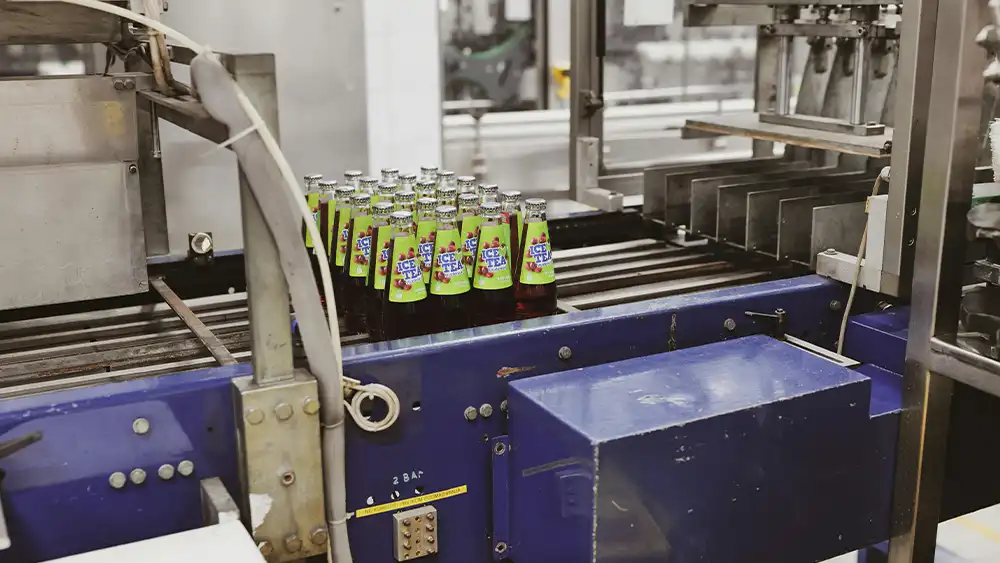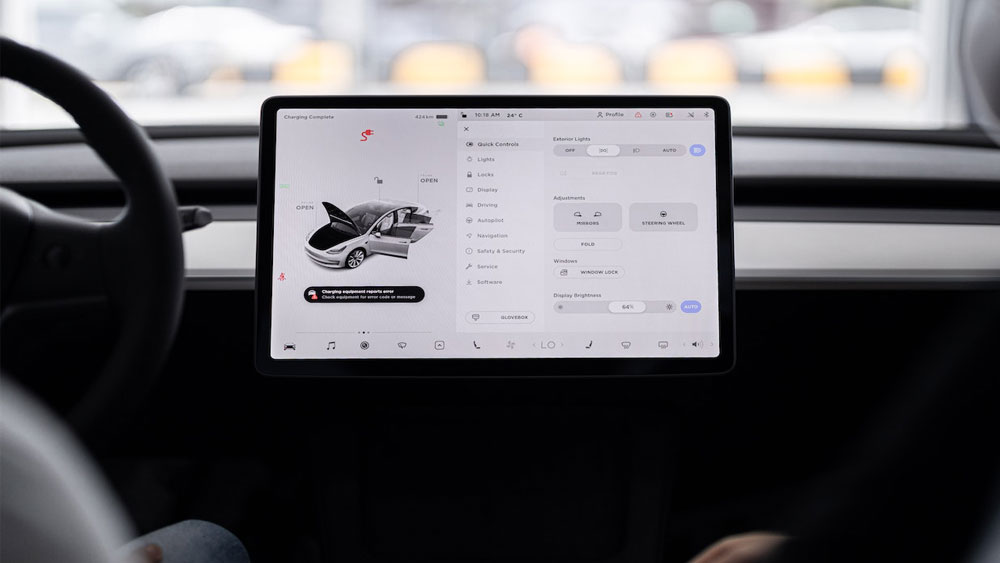The Key Features to Look for When Choosing Machinery for Beverage Production

Investing in the right machinery is one of the most critical decisions for any beverage producer. Whether you’re launching a craft soda brand, scaling up a juice production facility, or enhancing an established bottling line, the equipment you choose will influence your efficiency, consistency, and long-term profitability. Given the growing consumer demand for variety, speed, and quality, having reliable machinery isn’t just helpful, it’s non-negotiable.
The market offers a vast range of options, from compact fillers for boutique operations to automated systems capable of processing thousands of bottles per hour. Understanding what truly matters can help you navigate your choices and make an informed investment that serves your business goals today and in the future.
What to Consider When Selecting Beverage Processing Machinery
1. Production Capacity and Scalability
Your machinery needs to match your current production demands while also having the potential to accommodate growth. Underestimating capacity can lead to bottlenecks, missed deadlines, and dissatisfied customers. On the flip side, overinvesting in oversized systems can tie up capital unnecessarily.
Start by calculating your average and peak production volumes. Consider both seasonal spikes and long-term expansion plans. Some equipment lines are modular, allowing you to add new components as your production grows. Machines that can be easily upgraded or reconfigured will give you more flexibility and reduce future replacement costs.
2. Hygiene and Cleanability
Hygiene is a top priority in the beverage industry. Whether you’re producing dairy-based drinks, kombucha, or flavored waters, your machinery must support rigorous cleaning protocols. Any area where product residue can accumulate becomes a risk for bacterial growth or contamination.
Look for equipment constructed from food-grade stainless steel, with smooth welds and minimal joints. Automated Clean-in-Place (CIP) systems are often preferred, especially in facilities with high production rates. These systems clean internal surfaces without disassembly, saving time while improving sanitation. Make sure the equipment also complies with local and international food safety standards, including certifications like NSF or FDA approval where applicable.
3. Precision and Consistency

Beverage consumers expect uniform taste, texture, and appearance in every sip. The machinery you select must provide consistent filling, mixing, carbonation, and sealing. Inconsistent output hurts your brand image and creates waste that eats into profits.
Filling machines should offer accurate volume control to avoid overfills or underfills. This becomes especially important for carbonated drinks, where pressure balance matters. Mixing systems should ensure that ingredients are blended thoroughly with minimal foaming or sedimentation. Advanced sensors and automation features can assist with real-time adjustments to maintain quality from batch to batch.
4. Energy Efficiency and Sustainability
The beverage industry is under increasing pressure to adopt environmentally conscious practices. Energy-efficient machinery can reduce utility costs and minimize your facility’s carbon footprint. This is particularly important in operations that run around the clock or use heating and cooling cycles during processing.
Modern equipment often includes features such as variable frequency drives, energy recovery systems, and low-energy cleaning protocols. In addition to reducing consumption, these improvements can also lead to government incentives or sustainability certifications, giving your brand a competitive edge.
Sustainability also includes water usage, especially during cleaning and rinsing stages. Evaluate how much water the machinery uses per cycle and whether it supports water recycling or filtration. Over time, these factors can significantly reduce operating expenses and support your environmental commitments.
5. Customization and Product Versatility
Beverage trends shift quickly. One month it’s probiotic shots, the next it’s flavored seltzers or oat milk lattes. Choosing machinery that supports a variety of formulations and container types gives you the ability to pivot quickly in response to market changes.
Versatile machinery allows for easy adjustment in bottle sizes, cap types, or ingredient concentrations without the need for complete retooling. This is particularly useful for co-packers or producers with multiple product lines. Look for equipment with touch-screen controls and memory settings that store different configurations, saving time during changeovers.
If you produce both still and carbonated beverages or alternate between hot and cold fills, your machinery should handle these variations without requiring extensive downtime or part replacement.
6. Technical Support and Spare Parts Availability

Even the best machinery will encounter wear and tear. When issues arise, having timely technical support can mean the difference between a minor hiccup and a full-blown production halt. Choose suppliers that offer responsive service, remote diagnostics, and on-site assistance when needed.
Availability of spare parts is another key factor. Confirm that components are stocked locally or can be shipped quickly. Some manufacturers also offer service agreements that include scheduled maintenance, which helps prevent breakdowns and extends the lifespan of your equipment. Reading testimonials and case studies from current users can provide insight into a supplier’s reliability and commitment to after-sale support.
7. Integration With Existing Systems
Your new machinery will need to work seamlessly with the rest of your production line. Whether you’re integrating with labeling stations, packaging lines, or storage systems, compatibility is a must. Mismatched speeds or workflows can create unnecessary downtime or require manual intervention.
Ask vendors whether their equipment supports common automation protocols like PLC communication or SCADA monitoring. This makes it easier to synchronize processes and gather data across the entire production floor. Having centralized control can also streamline employee training and reduce human error.
For facilities already using ERP or MES software, integration capabilities become even more important. Real-time data sharing can improve forecasting, inventory management, and compliance documentation.
8. Innovation and Technology Features
Smart technology is rapidly becoming a standard in beverage manufacturing. Automation, data logging, remote monitoring, and predictive maintenance are transforming how businesses operate. Choosing machines equipped with these features both boosts efficiency and provides valuable insights into performance and downtime.
For example, sensors that detect temperature shifts or flow inconsistencies can trigger alerts before problems escalate. Cloud-based monitoring lets you oversee operations from anywhere, while AI-driven analytics can suggest improvements over time. If you want to stay competitive and agile, it’s worth exploring options that offer advanced tech capabilities. Learn more here to explore innovative upgrades tailored to your production needs. These solutions are designed to evolve with your business, reducing the need for frequent equipment overhauls.
9. Regulatory Compliance and Documentation
Depending on your location and product category, your machinery may need to meet specific industry regulations. These can include FDA guidelines for food contact surfaces, CE markings for European equipment, or ISO standards for manufacturing processes.
Ask manufacturers for documentation that confirms compliance. This may include material certificates, validation reports, and calibration records. Keeping accurate documentation will help during inspections, audits, or certifications. It also ensures that your investment aligns with legal requirements and avoids potential liabilities.
Conclusion
Selecting the right machinery involves far more than comparing prices and specifications. Every choice affects your ability to deliver a high-quality product, meet demand, and adapt to change. By focusing on key features like precision, hygiene, scalability, and technical support, you lay the groundwork for reliable, long-term production. The right investment today becomes tomorrow’s competitive advantage in an ever-evolving beverage landscape.

news via inbox
Sign up and never miss out on the latest news and updates at HighStuff




